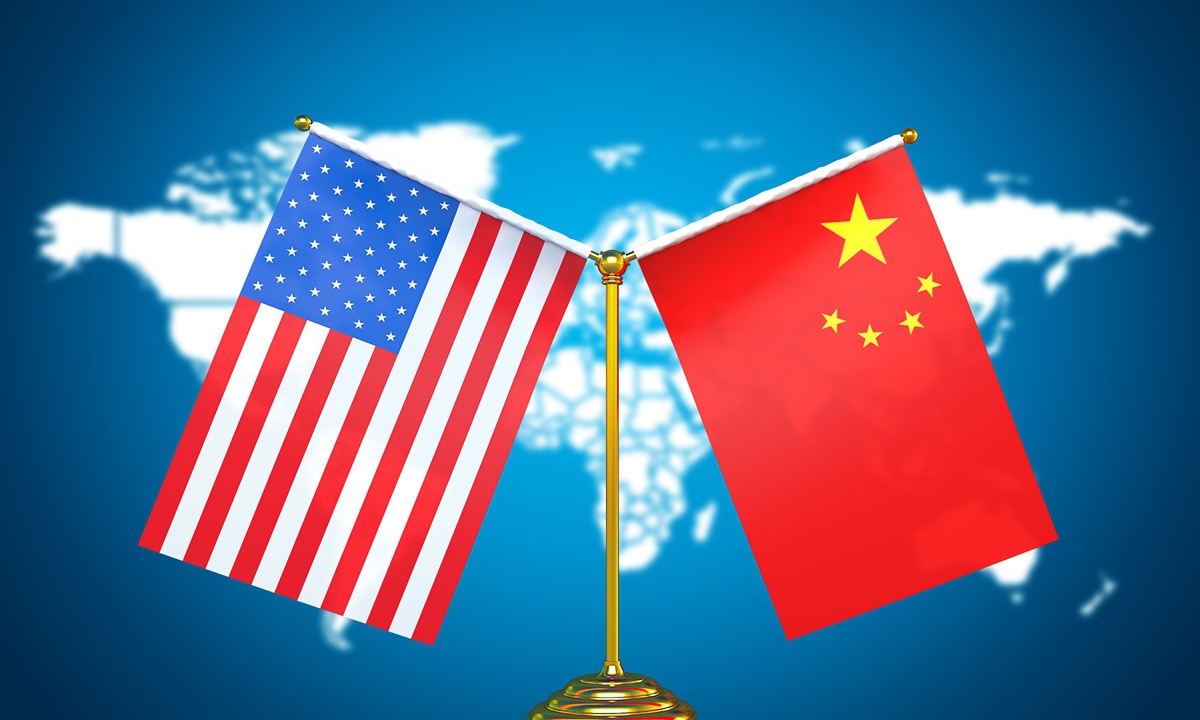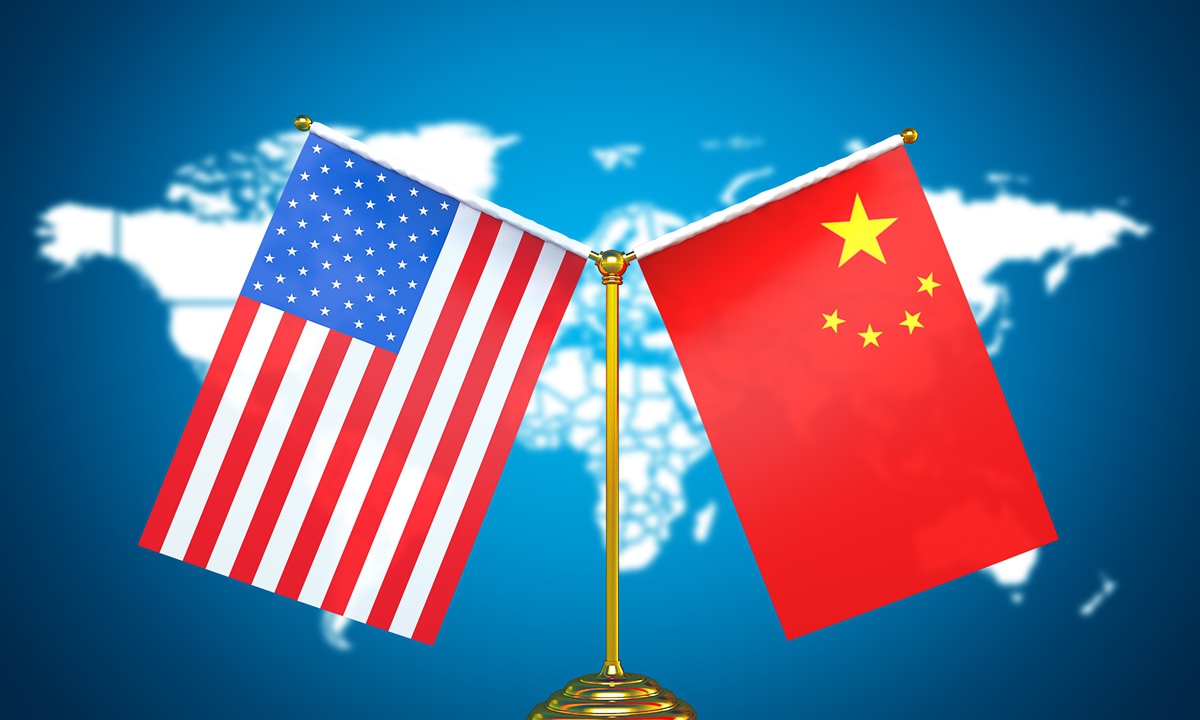
China US Photo:VCG
US companies saw an improvement in China’s business climate and regulatory environment in 2023, and they held an attitude of “cautious optimism” about in their operations in China, amid the country’s stepped-up efforts to attract foreign investment and signs of “a warming trend” in relations between the world’s two largest economies, a US business chamber report showed on Tuesday.
Though tensions in the bilateral relationship were still cited by American companies as the top business challenge for a fourth consecutive year, the economic prosperity enjoyed by both countries through having US companies operate and invest in China served as “a stabilizing force” in the bilateral relationship, and the ongoing promotion and advancement of American entities in China also sent a positive signal, the report said.
Chinese observers said that the report underscored that US businesses – despite discord created by US politicians in bilateral relations – have been taking a pragmatic approach and “voting with their feet” as to their confidence in investing in China.
They urged Washington to immediately address US companies’ core concern, as the ball is in the US court to stop politicizing and weaponizing economic matters and show more sincerity in its discourse with China.
The 26th edition of the American Business in China White Paper was issued by the American Chamber of Commerce in China (AmCham China) on Tuesday. The report contains a detailed assessment of the current operating environment for US businesses in China across 21 sectors and 10 industrial policy areas, and it concluded that US firms have seen an improvement in China’s business climate and regulatory environment.
It also tracked progress made last year in all the areas of greatest significance, and highlighted that “high progress” has been made in banking and the capital markets, as well as cross-border data flows and environmental, social and governance investing throughout the past year.
It applauded the Chinese government’s efforts in introducing initiatives to encourage foreign investment and encourage high-level communication and dialogue to foster mutual understanding.
The report also noted that although some foreign firms had left China due to various factors, those that remained in the Chinese market believe in the economy and seek to create a mutually beneficial ecosystem.
US companies continue to have great confidence in the Chinese market. They’re being careful in making business decisions to ensure they can get the best return on their investment, but they’re not leaving. In terms of opportunities, many of the member companies do see that there are plenty of opportunities to sell into the China market, AmCham China President Michael Hart told the Global Times on Tuesday.
With regard to China-US relations, the report said that bilateral relations have shown “a warming trend” with the resumption of high-level dialogue between the two governments since 2023.
However, with the escalation of US export controls and other negative factors, tensions in the bilateral relationship were still cited as the top business challenge for a fourth consecutive year, the report showed.
It expressed concern that the results of the US presidential and Congressional races may well influence the future direction of bilateral relations.
The huge opportunities brought by China’s high-level opening-up are well-anticipated and appreciated by the American enterprises, and they are valued in an objective and positive manner, Huo Jianguo, a vice chairman of the China Society for World Trade Organization Studies in Beijing, told the Global Times on Tuesday.
He noted that as China presses ahead with its opening-up, the country will reward those committed to the market with greater dividends.
While the document reflects enthusiasm and confidence about the prospects of the Chinese market for foreign investment, it also underscores the deep concern of US businesses, analysts said.
“The US-instigated tensions, coupled with pessimism spread by US politicians on the Chinese economy, have weighed on the business prospects of US firms,” Huo said, urging Washington to listen to the voices of the business community and show more sincerity in forging relations with Beijing, rather than taking a hegemonic approach.
There are more signs of escalating trade tensions between China and the US.
US Secretary of State Antony Blinken, during an upcoming visit to China, will reportedly warn that Washington will take punitive steps against Beijing over its “weapon-related exports to Russia.”
Hiding behind the “overcapacity” label, hyped by US politicians to suppress China’s advantageous industries, US President Joe Biden last week reportedly pushed for tariffs to be tripled on Chinese steel and aluminum.
Mutual trust and communication on an equal footing should be first and foremost in the US discourse with China, analysts said, calling on the US to immediately stop overstretching the concept of national security and politicizing economic rules.
